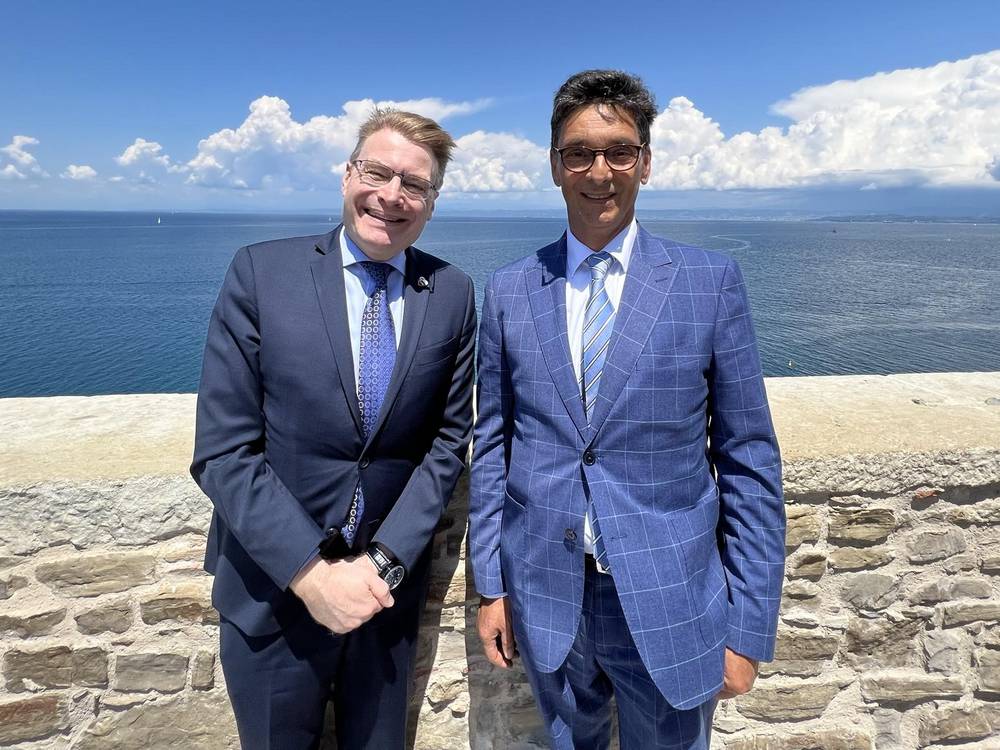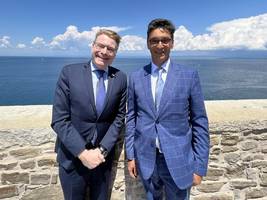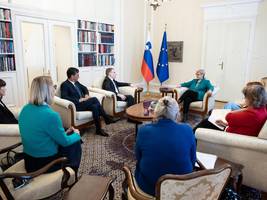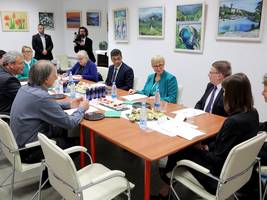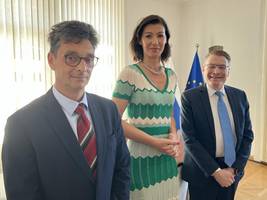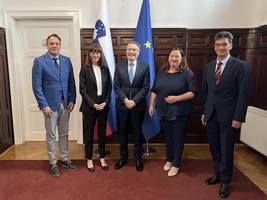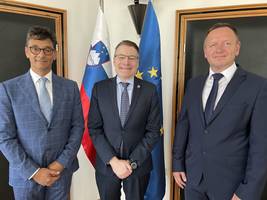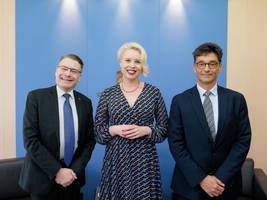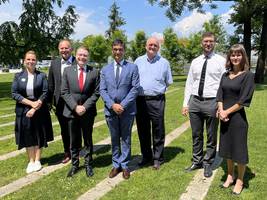The President of the IOI – International Ombudsman Institute Chris Field, who is also the human rights ombudsman for Western Australia and is this week on an official visit with his Slovenian colleague Peter Svetina, advocated the strengthening of the role of national institutions for human rights upon the conclusion of his visit to Slovenia.
He also emphasised the importance of the financial independence and operation of ombudsman organisations and national institutions for human rights, which after all stems from both the so-called Venice and Paris Principles. In his opinion, these organisations can only perform their tasks effectively if they are independent from the bodies or institutions they supervise. Field stressed that independence is not reflected only in contextual operation but the possibility of independent contextual operation is to a great extent dependent on financial independence and autonomy. “Just like in business the public sector top experts cannot work solely on ethical drive, but their expert knowledge must be appropriately evaluated. Moreover, the financing of the operation of independent institutions must be arranged in the manner that it does not allow for any influence on their operation,” clearly stated the President of the International Ombudsman Institute Chris Field. In his words, he was surprised that for several years decision makers in Slovenia have not realised the decision of the Constitutional Court of the Republic of Slovenia regarding the incompatibility of the Public Finance Act with the Constitution of the Republic of Slovenia due to the irreverence of the financial autonomy of four independent state institutions, even though the deadline for its execution expired in the end of December 2021. “It is crucial that independent institutions are autonomous also in the financials sense, since only this way they can perform supervision of the operation of the authorities in a professional manner and without fear from potential retaliatory political measures,” added President Field.
For the full respect of independence of institutions such as the Human Rights Ombudsman, President Field believes that a constructive dialogue of decision makers about the all questions pertaining to the operation of independent institutions, especially when appointing their competences, is also important. He emphasised that the decision-making on tasks and their execution must be in the domain of the institutions which by their nature and legal status are independent. “I fully support the arguments of my colleague Ombudsman Svetina that in the future politics should not add new competences to the Human Rights Ombudsman with laws or other regulations without prior consultation or detailed contextual coordination. After all, this should also consider the fact that the primary task of the Ombudsman is to fulfil duties directly originating from the Slovenian Constitution,” stresses the IOI President. Ombudsman Svetina informed him of the recent situation when, with the Radiotelevizija Slovenija Act, the institution was, without prior information and coordination, awarded the full power to appoint one member to the Council of the national radio and television broadcaster on the proposal of non-governmental organisations working in the field of human rights protection.
After numerous talks this week, President Field estimated that the Slovenian institute of the Human Rights Ombudsman is properly organised. “The Slovenian Ombudsman enjoys an excellent international reputation and with its engagement displays not only devotion to the strengthening of the position of institutions working in the field of human rights but is also sincerely committed to the respect of people’s dignity and rights,” explains Field. He added that he agrees with Ombudsman Svetina when he says that constant attention is needed in the field of human rights, since every violation of an individual’s rights marks and influences the quality of their life. “Institutions like the Slovenian one, which is a constitutional category, and other similar ones around the world are extremely important for society, since all of us working in this area are committed to high international standards and are a kind of a bridge between the state and civil society,” believes the President of the International Ombudsman Institute.
President Field especially emphasised the meaning of the realisation of recommendations of institutions of the human rights ombudsman. “In his annual report for 2022, which is just about to be published, the Slovenian Ombudsman warns that more than 100 most current past recommendations remain unrealised or partly unrealised, which is unacceptable since the Ombudsman represents the non-formal protection of human rights in a country and even though his recommendations are not legally binding, they are no less important,” highlights Field. He believes that it is the recommendations which are the most important tool of the ombudsman institutions, while their realisation indicates the level of democracy and commitment to the values of respecting human rights and dignity in an individual country. With a more consistent and faster realisation of recommendations of ombudsman institutions it is possible to significantly contribute to the rise in the level of respect for human rights and fundamental freedoms for all people. “If the authorities do not listen to the recommendations or warnings and does not realise them, problems can escalate. Even more, by realising the ombudsman’s recommendations, countries follow the commitments they accepted – including in the field of the rule of law. Solely by general referral to human rights without the determination to realise them no society can count on true progress,” added the guest of the Slovenian Ombudsman.
In the company of Ombudsman Svetina, President Field was also received by the President of the Republic of Slovenia Dr Nataša Pirc Musar and the President of the National Assembly of the Republic of Slovenia Urška Klakočar Zupančič, MSc. Both ombudsmen also met with the Minister of Justice Dr Dominika Švarc Pipan, Minister for Slovenians in Neighbouring Countries and Slovenians Abroad Matej Arčon and The President of The Commission for the Prevention of Corruption Dr. Robert Šumi.
The President and the Ombudsman also visited Bled and Piran and toured the Postojna Cave.
At the extended work meeting about the content of the work and the issue of human rights in Slovenia President Field talked to the extended professional board of the Human Rights Ombudsman. They devoted their attention to the promotion of the concept of the Ombudsman, its development, and activities in the field of international cooperation and exchange of experiences between countries, which are the main goals of the IOI. This organisation, the work of which is dedicated to human rights and fundamental freedoms and unites more than 200 ombudsman organisations from around the world, was founded in 1978 and Slovenia has been participating in it since the founding of the institution of the Human Rights Ombudsman. Since 2021, Ombudsman Svetina has been one of the IOI directors for Europe and a member of the World Executive Committee of the International Ombudsman Institute, while two weeks ago he was elected the Vice-President of the Association of Mediterranean Ombudsmen (AOM). In January 2021, the institution of the Human Rights Ombudsman acquired the accreditation of the national institution for human rights with status A, which means recognition that it works in accordance with the highest professional international standards of such institutions.
